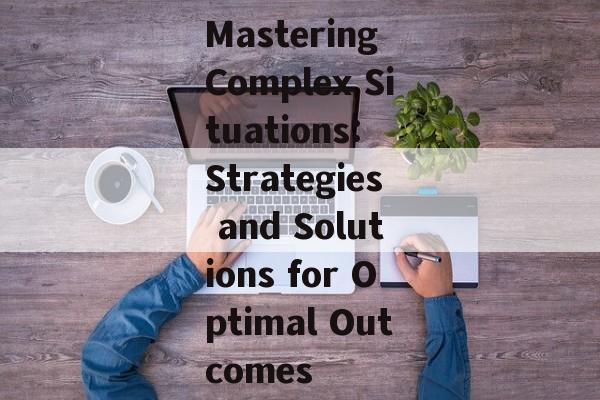Understanding the Nature of Situations
Every situation presents unique challenges and opportunities. To effectively tackle them, one must first understand the nature of the situation. This involves analyzing the context, identifying stakeholders, and recognizing the potential outcomes. By gaining a comprehensive grasp of the situation, individuals and businesses can develop informed strategies.
In today's fast-paced world, situations can change rapidly. It is essential to stay updated with the latest information and be adaptable. This includes being aware of the keywords related to the situation, such as 'situation analysis,' 'risk assessment,' and 'strategic planning.'
Identifying Key Factors in Situations

Once the nature of the situation is understood, the next step is to identify the key factors that influence it. These factors can include internal and external elements, such as resources, market conditions, and human behavior. Recognizing these factors helps in making well-rounded decisions and developing effective solutions.
For instance, in a business scenario, factors like competition, customer preferences, and technological advancements can significantly impact the situation. By identifying and analyzing these factors, businesses can stay ahead of the curve.
Developing Strategies for Situations
With a clear understanding of the situation and its influencing factors, it is time to develop strategies. Strategies should be tailored to the specific situation and aimed at achieving the desired outcome. This involves setting clear goals, identifying potential obstacles, and formulating action plans.
In the context of personal situations, strategies may include conflict resolution, time management, or stress reduction techniques. The key is to choose strategies that are feasible, realistic, and aligned with the overall objective.
Implementing Solutions in Various Situations
Implementing solutions requires careful planning and execution. It is essential to monitor the progress of the solution and make adjustments as needed. This iterative process ensures that the solution remains effective and relevant to the situation at hand.
Whether it is a business or personal situation, the implementation of solutions should be proactive and adaptable. This means being open to feedback and learning from experiences to improve future outcomes.
Assessing Outcomes and Learning from Situations
Once the situation has been navigated, it is crucial to assess the outcomes and learn from the experience. This involves evaluating the effectiveness of the strategies and solutions implemented and identifying areas for improvement. By learning from past situations, individuals and businesses can better handle future challenges.
This assessment should be objective and thorough, considering both the positive and negative aspects of the situation. It is also essential to share these learnings with others to foster a culture of continuous improvement.
Evaluating the Impact of Situations
Finally, evaluating the impact of the situation on the broader context is essential. This can include assessing the impact on stakeholders, the environment, and the overall objectives. By doing so, individuals and businesses can ensure that their actions contribute to long-term success and sustainability.
Understanding the impact of situations also helps in building resilience and adaptability. It allows for better preparation for future situations and ensures that decisions are made with a holistic perspective.
In conclusion, mastering complex situations requires a combination of understanding, strategy, implementation, and evaluation. By following these steps and staying attuned to the relevant keywords and factors, individuals and businesses can navigate situations with confidence and achieve optimal outcomes.










评论列表